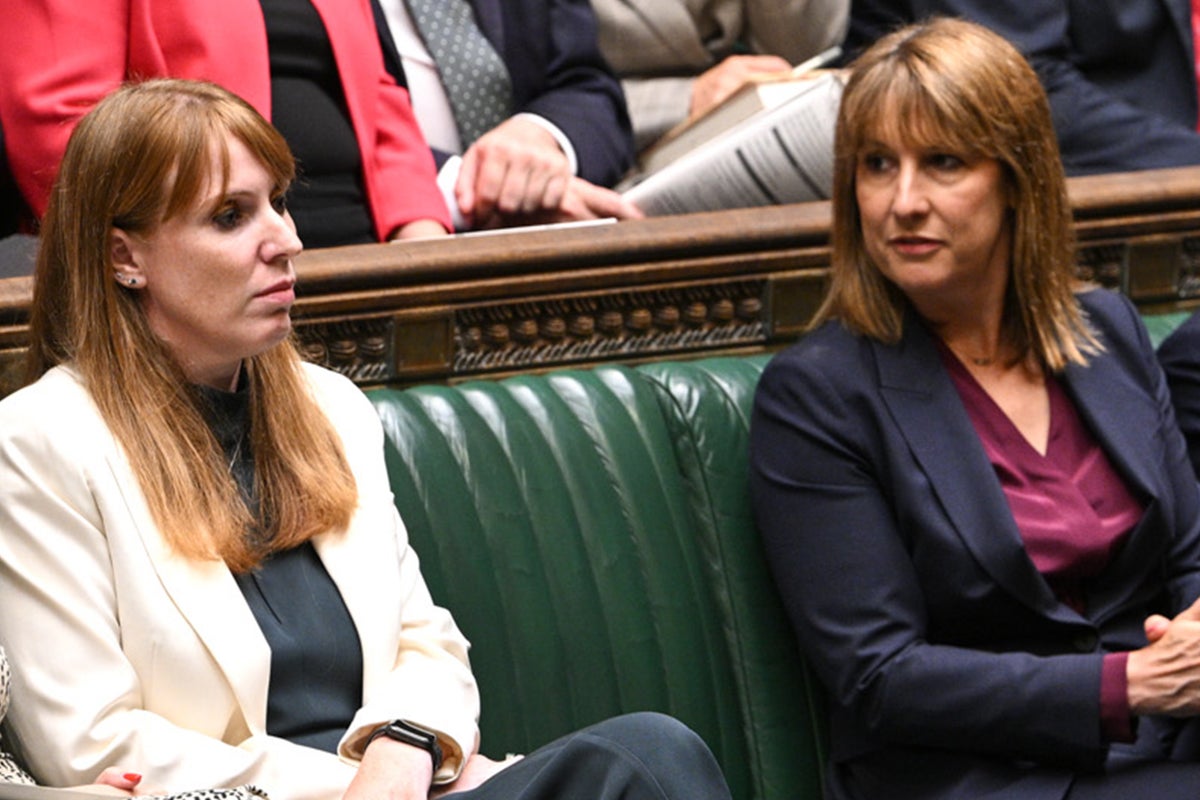When asked this morning if Angela Rayner would still be deputy prime minister at the end of the year, it is not surprising that Bridget Phillipson, the education secretary, was reluctant to give a definite answer.
“We’ve got a process that’s underway with the independent adviser,” Phillipson told LBC. “I’m not going to get into hypotheticals or speculate. I’m sorry to disappoint you. I’m just not going to do it. That process will run its course.”
Given that Rayner had previously allowed ministerial colleagues, including Keir Starmer, to back her when she knew there might be a problem, Phillipson’s caution is understandable.
Yet Rachel Reeves, the chancellor, felt no such inhibitions on Sky News a little later. Could Rayner stay in post, she was asked: “Yes, I have full confidence in Angela Rayner. She’s a good friend and a colleague. She has accepted the right stamp duty wasn’t paid. That was an error, that was a mistake.”
Phillipson is no lawyer, but she gave a lawyer’s answer, all about “process”, whereas Reeves gave a politician’s answer, which is that you back your colleagues until they fall. Reeves knows that if a colleague does fall, no one says: “But you said she wouldn’t…” Everyone remembers that you stood by the team.
Phillipson may have been naive, or maybe she was deliberately trying to give Rayner a little nudge along the gangplank towards the drop. Either way, there was none of the nonsense from another northern working-class woman about Rayner being the victim of snobbery and sexism.
This was in striking contrast to Starmer’s defence of Rayner in the Commons yesterday, when he said he was proud to sit alongside someone “who has come from a working-class background to be deputy prime minister”, which managed to be both irrelevant and patronising.
We can tell that Rayner is in serious trouble if cabinet ministers give different answers to simple questions about her future.
But we cannot tell, until we know the answers that Rayner gives to Laurie Magnus, the prime minister’s adviser on ministers’ interests, what that future will be. I think it all comes down to the nature of the mistake that Rayner admits she made.
Did she simply tell the solicitors who were handling the purchase of her flat in Hove that she did not own any other property? If so, that would have been a careless mistake, because she should have mentioned that her previous family home had been put in trust for her son, who has disabilities. She may have thought that she had divested herself of her interest in the Ashton-under-Lyne home, which would have been an honest mistake, but a solicitor should have recognised that she would still be an owner until her son reached adulthood.
The difference between an “honest” mistake and a “careless” one could be the difference between Rayner staying in government or going. It is the difference, as Dan Neidle, the tax lawyer who pursued Nadhim Zahawi’s tax affairs, has explained, between HMRC accepting the payment of tax due, plus interest, and requiring the back tax to be paid with interest and a penalty.
If Rayner has been careless, failing to give the conveyancing solicitor the full information, I think she will have to go.
That will be bad enough for the government, however relieved Starmer may be to be no longer stalked by such an evidently ambitious colleague. I assume that he would not replace her as deputy prime minister. There is no requirement that the post be filled – it was vacant from 2010 until 2021, when Boris Johnson needed to compensate Dominic Raab for the loss of the foreign office. Starmer would simply appoint a new housing and local government secretary.
But to lose a leading cabinet minister over their tax affairs would reinforce the perception that the Labour government is no different from the Tory one that preceded it. That perception will be only slightly less damaging if Rayner is exonerated by Magnus, but the difference is enough to justify Starmer sincerely wanting to keep her and to deny the Tories a “scalp”.
Either way, Rayner’s mistake is deeply unhelpful to the government. No wonder her colleagues are at sixes and sevens in knowing whether to defend her.

